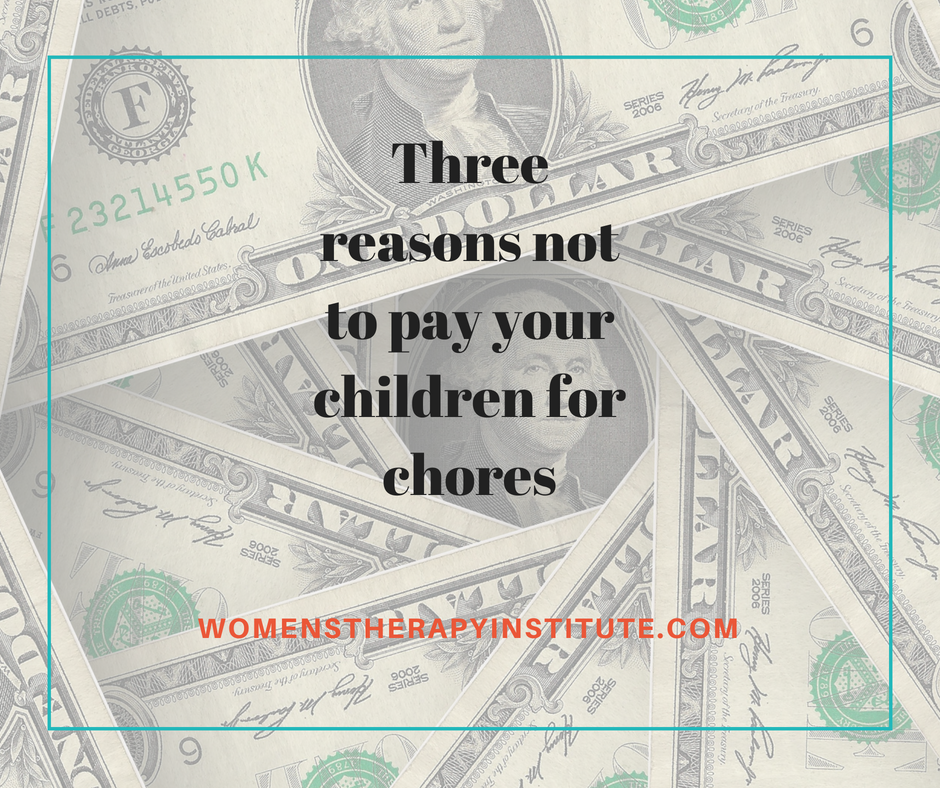
Three reasons not to pay your children for chores
We have all heard the positive arguments for paying your children to do chores: it teaches them how to manage money, it is motivating, it gives them an allowance to use on things they want, and it teaches them responsibility.
The other day this very question came up in my home and my therapist brain kicked in and said: “this is a bad idea.” But why is it so bad? Here are three reasons why you don’t need to pay your children for chores, and why it could actually be a bad idea.
Here is why:
1.)It teaches children that love is transactional. When you pay your children to be helpful and do things they should be doing out of love, you are teaching them they should get money for being a helpful, kind, contributing member of the family. Family members should be stepping in to help each other. It shouldn’t be expected that you will get paid every time you do something for family.
2.)They won’t learn intrinsic motivation. Rather than teaching your children that they will feel good if they help, that it makes other people happy, and all those other internal feelings that should motivate them in life, you are teaching them to do something only if there is an external reward. They are learning to only be motivated by external forces, rather than the internal rewards that build character and shape them as adults.
3.)They won’t get paid for chores as an adult. Do you get paid every time you clean the toilet or do a load of laundry? I don’t think so. So why set that expectation? Your children will need to take care of the yard, their homes, and their family’s needs without any external rewards. It is just something that needs to get done.
If you do want to give your kids an allowance, pay them for doing things that are out of the routine. Maybe you need help sorting something or working on a home project. Those are great times to “hire” your children. When it comes to the daily routine, leave money out of it. Instead, tell them how appreciative you are of them for helping out. Thank them. Give them a high-five or a hug, but leave the money to the special circumstances.
